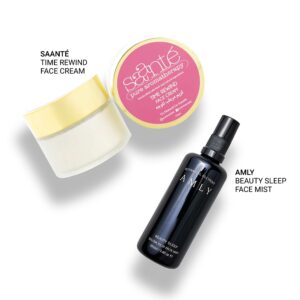Which Dietary Supplements Help to Combat Insomnia?


Insomnia is a pressing health concern, which affects up to 15% of the global population. An inability to get to sleep and/or stay asleep is thought to impact a person’s long-term health and well-being, contributing significantly to mental health issues and increasing their risk of developing obesity, heart disease, type 2 diabetes and depression.
Whilst there is medication available to treat insomnia, not everyone who has trouble sleeping chooses to take it. A growing number of people are opting instead to implement lifestyle adjustments or incorporate dietary supplements into their daily routine. Two of the most widely used supplements are melatonin and magnesium.
Melatonin
Melatonin is a hormone that our bodies produce exclusively at night time. Levels start to increase two hours before the onset of natural, nocturnal, sleep and peak five hours later. The hormone helps us to sleep by regulating the circadian (24 hour cycle) rhythm. One underlying cause of insomnia can be insufficient levels of endogenous melatonin. Levels of the hormone decline with age, coinciding with an increase in the prevalence of insomnia. As many as 40-50% of adults over the age of 60 are thought to suffer from insomnia. Unnatural light can also interfere with the release of melatonin, which may be why an over-reliance on smartphones and screen time immediately before bed can exacerbate sleeping issues.
In Europe, melatonin supplements have been approved for the management of primary insomnia in adults over the age of 55. Clinical trials have also suggested that exogenous supplementation could help other patient cohorts at risk of disrupted sleep; for example, those with attention deficit/hyperactivity disorder (ADHD), children on the autism spectrum and women with premenstrual dysphoric disorder (PMDD).
Melatonin supplements are well tolerated and adverse side effects are minimal; headaches, dizziness and nausea are possible side effects. They have been shown to improve the onset, duration and quality of sleep when given two hours before bedtime. Melatonin can interact with other medications, such as anticoagulants and anticonvulsants, so always check with a doctor before using for the first time.
Magnesium
The effect of magnesium on sleep behaviour is not fully understood, but a deficiency in it is linked to a myriad of health complaints, including sleep disorders. Magnesium is an electrolyte, which means it conducts electrical impulses in the body. The balance of electrolytes within the body is essential for normal function of cells and organs. It is thought that magnesium itself is involved in more than 300 biochemical reactions in the body, including many regulating energy metabolism and neural transmission (the passing of information along the nerve cells). Deficiencies in magnesium appear to disrupt the circadian cycle and affect the production of melatonin, which, as described above, is fundamental for maintaining a healthy sleep-wake cycle.
Two of the major risk factors for magnesium deficiency are aging and an inadequate dietary intake. Within the body; most magnesium is stored in the bones and with age, bone mass declines, meaning that endogenous levels of the mineral fall. Food which is rich in magnesium includes dark leafy greens, nuts, seeds, beans, seafood and low fat dairy products. Unfortunately, dietary deficiencies in these food types are not uncommon.
When given to elderly patients suffering from insomnia, magnesium supplements were shown to improve various measures of sleep; both subjectively (for example, perceived sleep efficiency and sleep duration, early morning awakening) and objectively (for example, serum melatonin and cortisol levels).
Additional studies have found that taking a combined dietary supplement of melatonin, magnesium and zinc improved quality of sleep and quality of life in those with primary insomnia. Unfortunately, many of the studies are of small sample size, so further validation of the results would be useful.
If you suffer from insomnia and want to try supplements as a means of managing your condition, you should speak to your doctor first. They will want to check that there is no underlying medical reason for your insomnia and will be able to offer advice on what the most appropriate course of action is for you.
To read more about insomnia click here. Also try Nabta’s Insomnia pack or consider booking an at-home vitamin D test to check if you are deficient.
Nabta is reshaping women’s healthcare. We support women with their personal health journeys, from everyday wellbeing to the uniquely female experiences of fertility, pregnancy, and menopause.
Get in touch if you have any questions about this article or any aspect of women’s health. We’re here for you.
Sources:
- Abbasi, Behnood, et al. “The Effect of Magnesium Supplementation on Primary Insomnia in Elderly: A Double-Blind Placebo-Controlled Clinical Trial.” Journal of Research in Medical Sciences, vol. 17, no. 12, Dec. 2012, pp. 1161–1169.
- Lyseng-Williamson, Katherine A. “Melatonin Prolonged Release.” Drugs & Aging, vol. 29, no. 11, 9 Oct. 2012, pp. 911–923., doi:10.1007/s40266-012-0018-z.
- Rondanelli, Mariangela, et al. “The Effect of Melatonin, Magnesium, and Zinc on Primary Insomnia in Long-Term Care Facility Residents in Italy: A Double-Blind, Placebo-Controlled Clinical Trial.” Journal of the American Geriatrics Society, vol. 59, no. 1, Jan. 2011, pp. 82–90., doi:10.1111/j.1532-5415.2010.03232.x.
- Sarris, Jerome, and Gerard J. Byrne. “A Systematic Review of Insomnia and Complementary Medicine.” Sleep Medicine Reviews, vol. 15, no. 2, Apr. 2011, pp. 99–106., doi:10.1016/j.smrv.2010.04.001.
- “Sleep Disorders: In Depth.” National Center for Complementary and Integrative Health, U.S. Department of Health and Human Services, 20 Nov. 2018, nccih.nih.gov/health/sleep/ataglance.htm.
- Xie, Zizhen, et al. “A Review of Sleep Disorders and Melatonin.” Neurological Research, vol. 39, no. 6, June 2017, pp. 559–565., doi:10.1080/01616412.2017.1315864.













































